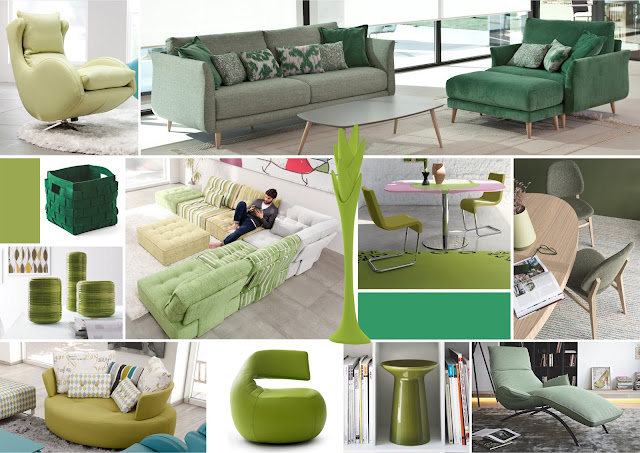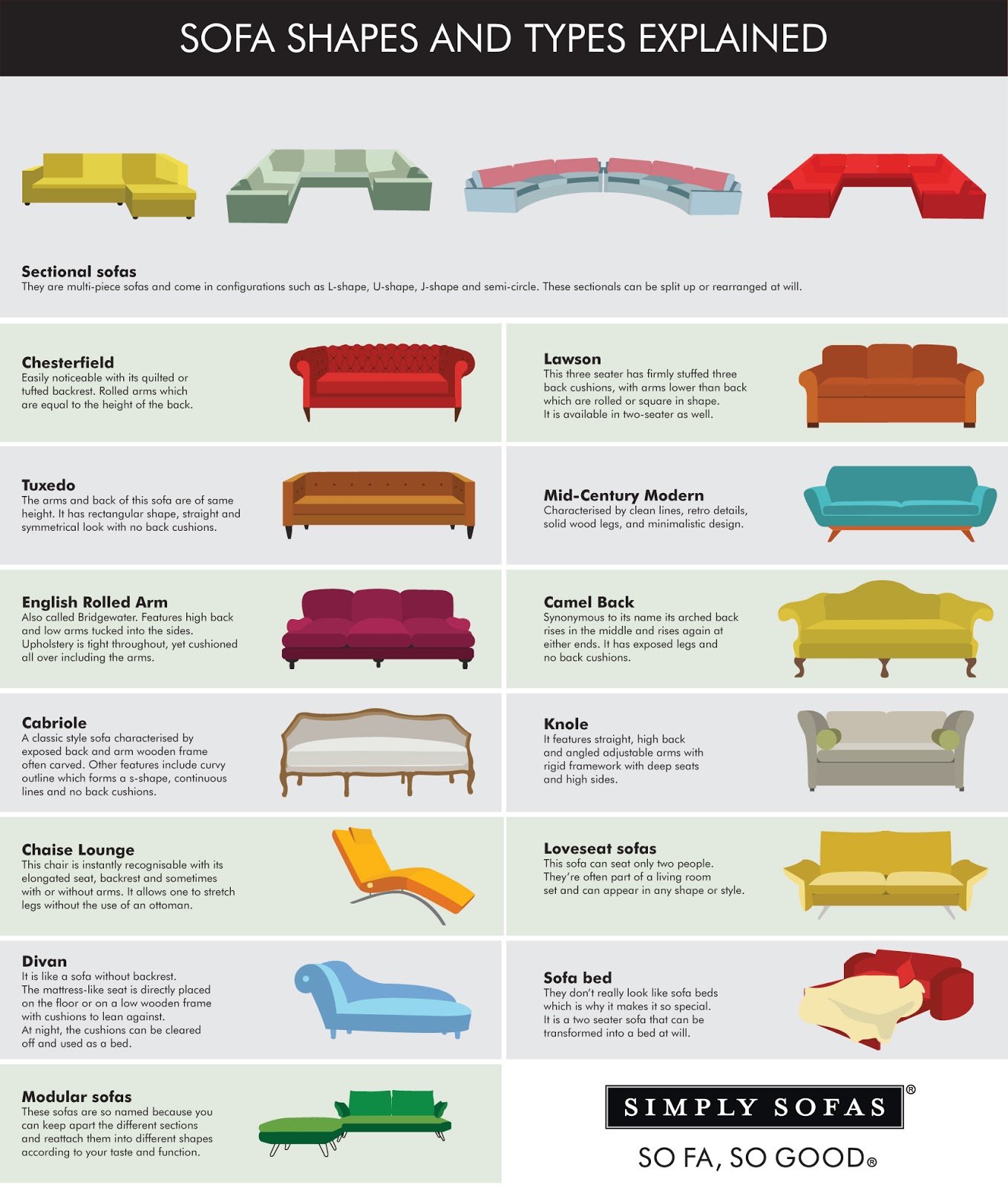The Psychology of Colours in Interior Decoration - Part 1
Your home is essentially an expression of your style similarly
the colours, designs and mood you want to set in your home will be unique to
you. Apart from the shape, style or material, colour is an integral as well as
a vital part of your décor because it creates an overall mood be it calm,
cheerful or dramatic. Colour psychology says that though people are attracted
to some colours or look good in a dress of a particular colour, doesn’t mean
that the same colour will look good in their décor. In fact, there are certain
guidelines you need to follow to get a desired or professional look for your
interiors. These sure shot ways will aid in getting you the right colour scheme
or setting the right mood for your home.
Blue
Meaning: Colour of the sky, sea and earth, blue is associated
with depth and stability. It denotes trust, loyalty, wisdom, confidence,
intelligence, strength, dependability, faith, and truth.
Mood: Blue is scientifically proven to have a calming effect
on your mood as well as makes you feel relaxed, soothing and more centred. It
improves productivity and builds confidence. It creates a sense of cooling and
gives a clear look. Since it is associated with tranquillity and calmness, it
is beneficial to the mind and body. Employ blues to create an atmosphere of personal
space and meditation.
 |
| Light blue to dark, blue has a calming effect |
How to use blue in your Interior: Blue tends to enlarge the
room with the use of a very light shade. If your space is exposed to sunlight
you can use this colour to cool a room. For instance, aqua blue velvet sofa
looks fabulous in a contemporary setting and tones down the harsh sun rays. The
beauty of blue lies in its amazing versatility. A high-energy shade of blue,
like sapphire or royal blue, can add a bold punch of energy to a room, while a
light sky blue can make a space feel tranquil. Darker shades like navy can
offer drama and relaxing nautical vibe, while electric blue is often more
energizing than calming. The effect depends on the tone of blue. The
combination of blue and white in your décor can feel refreshing and fun.
Vibrant, high-tone blues are great for accent furniture pieces or artwork to
add vigour.
Red
Meaning: Red is an intense colour associated with energy,
war, danger, strength, power, determination as well as passion, courage,
desire, and love.
Mood: Red increases enthusiasm, stimulates energy, passion
and strong emotion. It boosts action, confidence and appetite.
 |
| Tones of red to reflect passion |
How to use red in your Interior: Red is a powerful colour that
brings out the best in your décor. It’s best used as accent but using a red
sofa in your décor makes a powerful statement that relates to dominance or
authority. If you’re using a red sofa make sure that it is juxtaposed to a wall
colour that’s white or black but not same colour. If there is no contrast, it
will make your room look monotonous than bringing out the colour essence or the
meaning you want to display. Using dark red in your interior exhibits daring,
bold, willpower and commands attention whereas a light red represents passion
and sensitivity. Red also goes well with black but the ratio should be fixed to
an extent that you feel it is not too noisy or loud. Red can be combined with
browns or light colours to achieve elegance and energy as well as the retro
vibe. If not the sofa, big chairs and drapery can display red to make your
space more inviting. While an earthy red used with wood tones can warm a room,
a red with soft gray and touches of magenta or orange can make a room feel cosy,
feminine and soft. Depending on the texture, deep reds may absorb light while
brighter reds allow light to bounce off walls and illuminate the space. Though
its versatility makes it a vital among other colours, red can feel
contemporary, traditional, rustic or timeless, depending on the shade and
context.
Yellow
Meaning: Colour of the sunshine, yellow is an uplifting hue.
It is associated with happiness, optimism, joy, intellect, and energy.
Mood: Yellow is a mentally stimulating colour. It produces
warming effect and arouses cheerfulness. It stimulates the nervous system,
activates memory, encourages communication and promotes creativity.
 |
| Yellow- uplifting and happy colour |
How to use yellow in your Interior: Yellow is effective for
grabbing attention, hence using it to highlight an important element in your
design or space is important. Using light yellow furniture with light colour
wall paint will make it disappear into the background, while using a dark tone
will bring a balance in your space. If you’re using a dark yellow furniture or
sofa, tone it down with white accent or white wall paint. Using muted yellow
will make you feel relaxed, peaceful, and airy as well as give you a bonus of
making your space appear large and spacious. Adding yellow accent or
accessories in your foyer or space offers a fresh appeal and optimism. You can
add a splash of yellow colours in your décor by using Koinor and Natuzzi sofas
and brighten up your space. Effects of yellow colour vary with its nuances.
Yellow is a great colour for rooms that have more exposure to sunlight. A darker
yellow element may be damper after a while but a pale yellow can make a compact
room feel larger. Use of smaller amounts of yellow in accessories, flowers or
pictures can make your space stand out. The wide spectrum of yellow shades gives
you flexibility in designing rooms with a feel-good ambiance.
Pink
Meaning: It is associated with friendship, tranquillity,
warmth, affection, feminine, tenderness, harmony, inner peace, and
approachability.
Mood: it is a very comforting colour and is favoured by many
for its childlike appeal. It brings about serenity, peace, relaxation,
acceptance, contentment and satisfaction. In general, used in interior design,
the psychological effects of colour pink is soothing and comfortable.
 |
| Bring harmony and warmth to your home with pink |
How to use pink in your interiors: pink can be used in a
number of ways to uplift a space and doesn't have to be a colour that dominates
the room. For instance, with a sofa like Fama’s Arianne love the entire space
is giving a bright and calm look. You can use pink colour to create a fresh and
fine atmosphere in the house. A bright, vivid tone like fuchsia suggests energy
and glamour. A soft and restrained pink, like blush, or beige with pink
undertones creates a soothing feeling. If you ever think of having white
painted walls, go for pink, it’s a flattering colour that makes people feel
good and add energy to your home. You can use a more intense pink (like peony)
for a space where you don't spend too much time, like your foyer. Pink can be
paired with other colours, including chocolate brown, black, mint green,
metallic gold and silver and white to create a variety of moods. When paired
with a masculine hue like navy blue, pink can add a feminine balance. A light
posy pink with a touch of gray can add innocence and sophistication to a room.
Mix soft pinks with fresh greens for an inviting living room. A fabric pink
sofa or a shaggy pink carpet makes your space feel comfortable. If used
intelligently, pink can be a great addition to any home.
Green
Meaning: Greens represent a vast range of natural colours and
appeal to many. Like blue, greens tend to calm and relax; it´s a healing colour.
It symbolizes growth, harmony, freshness, and fertility. Green has strong
emotional correspondence with safety. Dark green is also commonly associated
with money. Green has great healing power. It is the most restful colour for
the human eye; it can improve vision. Green suggests stability and endurance.
Mood: It’s Soothing, and restful on the eye, relaxing mentally as well as physically,
helps alleviate depression, nervousness and anxiety and offers a deep sense of
renewal, self-control and harmony.
 |
| Colour of nature in various hues |
How to use green in your interior: For interior colour
schemes, olive and sage greens seem to be appealing because of their neutral
character. Lighter shades of both are easy to live with for a long time. Both
combine well with many colours. Dark greens are colours like burgundy, ruby,
and sapphire blue. Chartreuse is one of those colours that delivers a big
punch, but gets tiring quickly. Green immediately brings a fresh and rejuvenating
feel to a room, whether it is a light and minty shade or deep and dark forest
colour. Use the psychological effects of green colour to create a calm and
relaxing atmosphere in your home. Green is very soothing to the eye and nature
gives us a lot of nuances. The best way to use green in the interior design is
to combine several colours, or green combined with other colours. Green
represents growth and renewal. You associate the colour with grassy fields,
luscious leaves and other gifts of nature, so it lends a calming feel to a
room. Celery green looks relaxing and warm in a living room. Pops of lime green
add energy to a room with a mostly white palette. When paired with light gray,
paler shades of green can create a contemporary look that feels fresh and
clean. Mix green with wood tones to imbue a room with an organic, natural feel.
Use citrus greens to bring brightness to a gloomy space. Use green in an entry
hall to provide a natural link from the outdoors to the inside of your home. The
soothing quality of green makes it ideal for almost any room. You can decorate
an entire room with greens and have contrast, drama, richness and balance.



I have seen your post regarding sofas, chair and interior design which is really good to see about it..you did good work on that post nice. blinds and curtains in dubai
ReplyDeleteThanks for this such a good post...